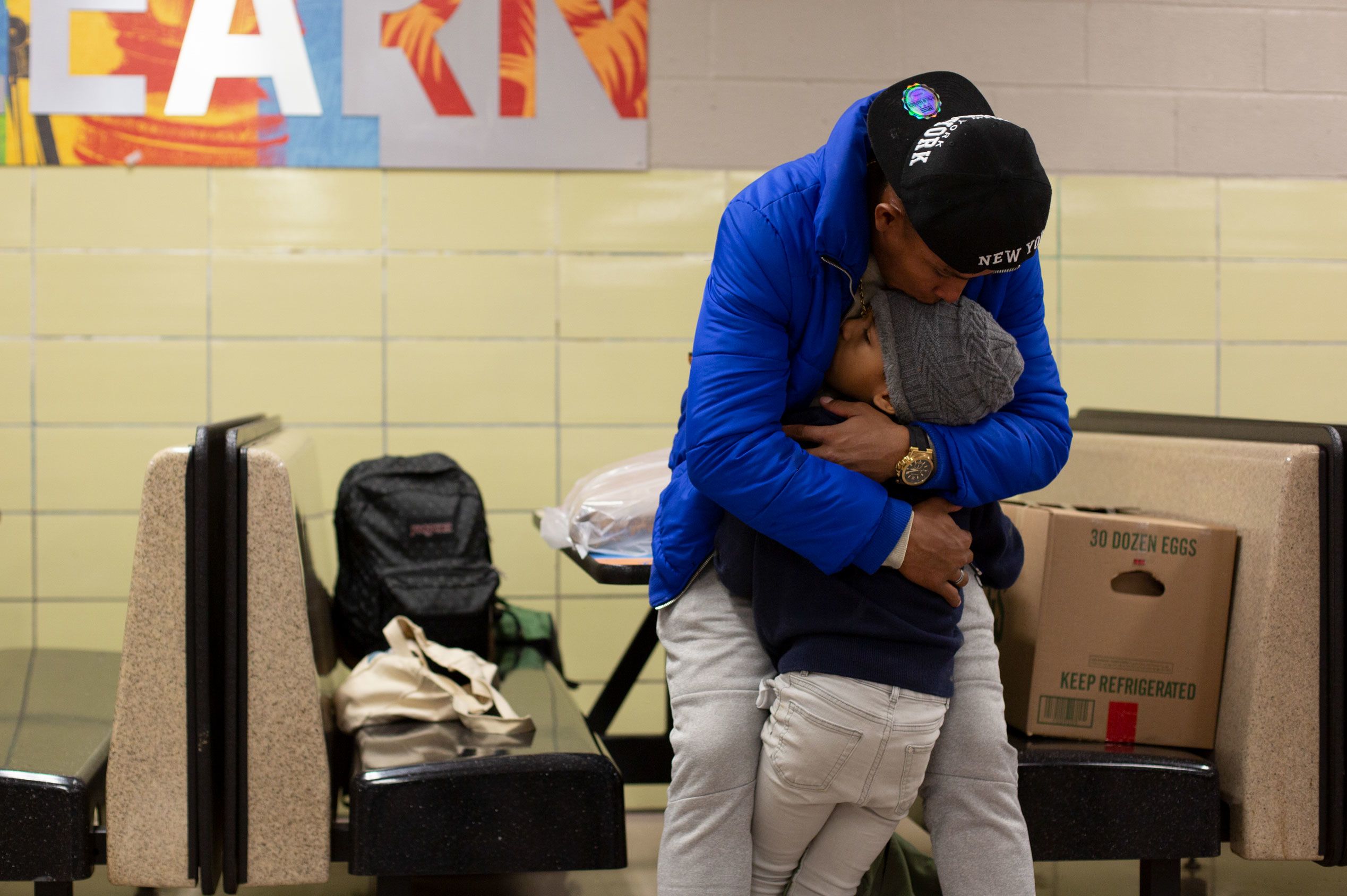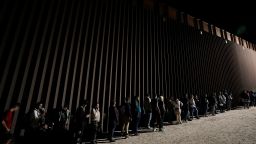When Americans sit down for Thanksgiving dinner, 7-year-old Jean Luis Hernandez will be in the single room he shares with his family in a once-elegant Manhattan hotel, missing his beloved grandparents in Venezuela.
“He thinks about them all the time,” said Lucelys Garcia, 27, the boy’s mother. “He was always with them.”
Jean Luis, his mother, stepfather and aunt will not have turkey and gravy on Thursday. They won’t watch football on TV. His 17-year-old aunt, Kimberlyn Nayib Izquierdo Flores, has never heard of the Pilgrims or the Mayflower.
She eagerly recounts, however, how she and her three relatives journeyed in recent months across a half-dozen countries and a brutal jungle called the Darien, where they saw bodies floating face down in rain-swollen rivers.
“We went from Colombia to Panama, from Panama to Costa Rica, then Nicaragua and Honduras, Guatemala and Mexico and across the border to the United States,” she said.
“Some days we did not eat.”
For many of the thousands of asylum-seekers from all over the world who have arrived in New York City in the last year, Thanksgiving is just another day – considering what they’ve been through. And what lies ahead.
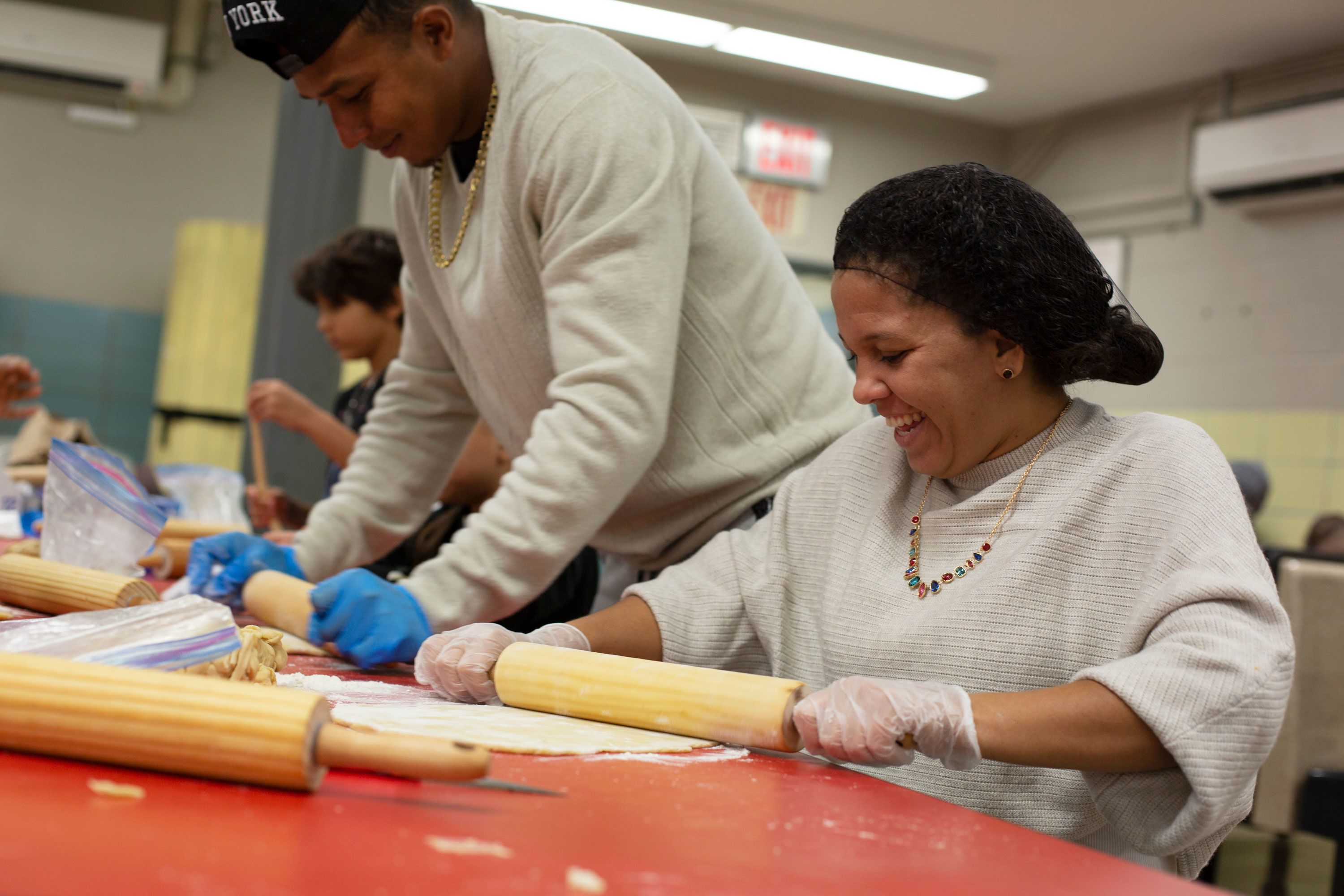
The holiday is one more day to focus on immigrations papers, jobs to secure, a new language to learn, and a cold and sprawling city to navigate.
“We want to adapt to new traditions,” said Garcia, speaking Saturday at a Manhattan middle school where she and other migrants baked pumpkin pies they distributed to homeless shelters with the help of a nonprofit that provides free legal representation for children and families.
“We will always have Venezuela in our hearts. But we will need to adapt to new customs in order to survive here.”
A spiral of crises in a new land
Displaced by war, persecution, violence, human rights abuses, poverty or the climate crisis, newcomers in recent years have fueled a massive migration movement to cities across the United States.
Some have been bussed up from Texas while others have arrived on their own, straining local resources in a city that under a local mandate must offer shelter to all.
While other American hubs have received a growing number of migrants, New York City has become the epicenter of the crisis. The number of newly arrived asylum-seekers since spring 2022 has surpassed 100,000, with costs for housing and other basic services projected to run up to $12 billion in the coming years.
Unprecedented migration in the Western Hemisphere has posed a steep challenge for the Democratic administration of President Joe Biden, at the US Southern border and in cities like New York, where asylum-seekers choose to go as their cases wend through US immigration courts, often for years.
New York Mayor Eric Adams, also a Democrat, has declared a state of emergency and warned the cost of the migrant crisis could “destroy” New York unless there is more state and federal help.
Adams last month announced a new rule requiring migrant families in New York City shelters to leave after 60 days and reapply for placement; the city estimates there are more than 64,000 migrants in its shelter system.
The 60-day rule is likely to affect tens of thousands of homeless migrant children now enrolled in the city’s public school system, creating new difficulties for families forced to relocate.
‘America is safe’
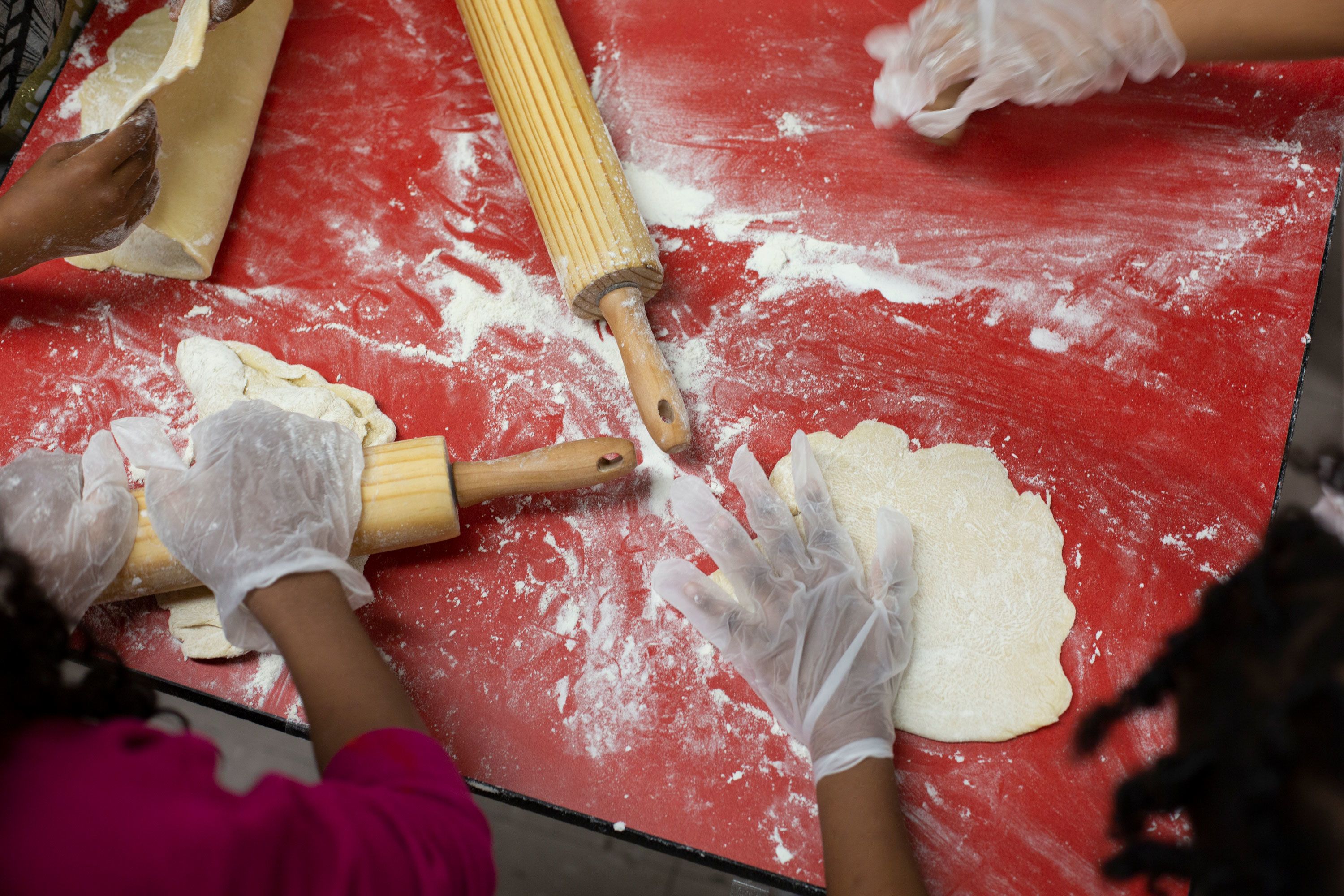
Safa Faqiry, 9, stood at a table Saturday in a school cafeteria with her 15-year-old sister Marva, making pumpkin pies with help from the staff of Project Rousseau, the non-profit that gives legal assistance to migrants.
Their father had been an Afghan diplomat in Iran, they said. They were forced to flee that country in February, when Iran formally handed over the Afghan embassy in Tehran to the Taliban.
“After Brazil, we passed 11 countries and even the jungle in Panama to get to the United States,” Safa said. “I came here because our country wasn’t safe. America is safe. I can go out alone with my sister.”
Safa and all three of her siblings are in school while living with their parents in a Manhattan hotel.
“I want to go to school,” she said. “Nobody can say to me you cannot go to school because I like to go to school. I don’t want to see my future in the trash. I want to study. I want to be a doctor.”
Nearby, the Roosevelt Hotel has become the city’s main intake facility for new arrivals. With about 3,000 people housed on upper floors, according to city officials, the once-grand inn is now referred to as “the new Ellis Island,” after the site in New York Harbor through which 12 million immigrants entered the US.
Back in 1894, 350 ”foreigners” on Ellis Island “learned for the first time … the significance of Thanksgiving Day in America,” sitting for a “feast of turkey, vegetables, pies, and pudding,” the New York Times reported.

“The happy immigrants were ranged along the long tables laden with good things,” the newspaper said, adding that “for the next two hours they ate, drank, and were exceedingly merry.”
On Saturday, the latest generation of newcomers to America baked hundreds of pumpkin pies for homeless New Yorkers ahead of the holiday. Their work was organized by Project Rousseau, which is helping about 2,000 new arrivals maneuver their immigration legal service needs and provides academic and other programs for more than 2,000 young people, including migrants.
“The most important message of Thanksgiving is to me that it’s both about the gratitude and about the giving, and maybe how much joy comes from the joy of just giving,” said Andrew Heinrich, who founded Project Rousseau and serves as executive director.
‘Grateful to be alive’
Many of the migrants are still coping with the traumas of their journey to America. Many crossed the US-Mexico border into Texas only to be forced onto buses and sent to cities like New York, where they arrived with enormous needs and few connections. Those without relatives in New York often ended up in homeless shelters and hotels, relying on non-profits for aid.
Heinrich recalled a trip on which migrants were invited to sit courtside at an NBA basketball match-up. Some initially backed away, refusing to get on the bus to the game.
“We had to explain, ‘Don’t worry, we know where this bus is going. We paid for this bus,’” Heinrich said. “Initially there was confusion, you know.
“The last time they saw a bus wasn’t that great.”
On Saturday in the cafeteria of the Robert F. Wagner Middle School in Manhattan, dozens of migrant families and Project Rousseau staff members baked hundreds of pies they then placed into boxes for distribution at shelters for the homeless.
At times, 7-year-old Jean Luis ran around with the boundless energy his mother said he exhibited traversing the dense rainforest and jungle-covered mountains of the Darien Gap between Colombia and Panama en route from Venezuela.
Jean Luis was always ahead of his mother, she said, trekking the dangerous terrain with a Haitian family they befriended along the way. The Haitian migrants nicknamed him “Dynamite” because of his explosive energy.
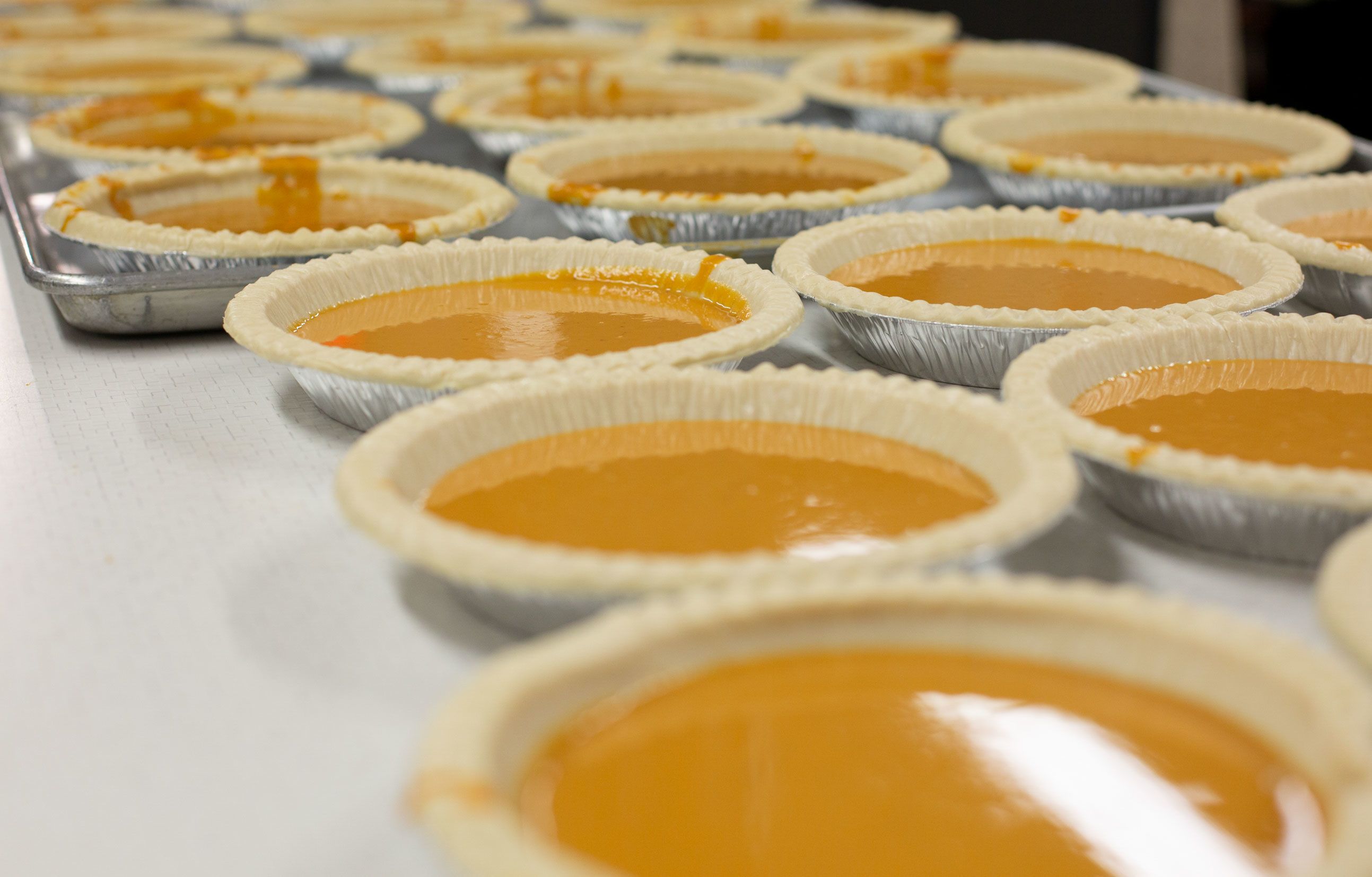
His stepfather, Franklin Jose Rivero, 24, trailed behind them, hauling food and water and even piggybacking his own 17-year-old sister for part of the journey.
“He would encourage us to keep going,” Garcia said of her son. “It was like he was guiding us. ‘We’re going to make it,’ he kept saying.”
The family left Venezuela in May. They jumped off a moving freight train in northern Mexico, they said, and crossed the Rio Grande into Eagle Pass, Texas, in August.
“We are grateful to be alive, to be here,” Garcia said a few days before Thanksgiving. “I hope that over time my son can forget the things he saw on our journey. … I want him to learn new traditions. But Venezuela will always be in his heart, along with his grandparents.”
